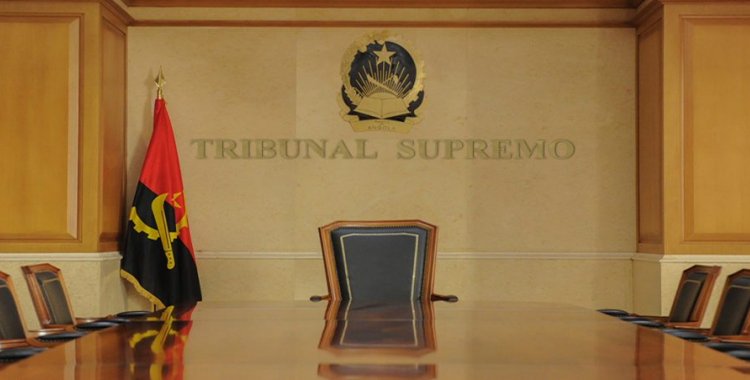The case at issue is a class action lawsuit submitted to the Supreme Court in August 2022, signed by 57 members of civil society who complained, during the election period, about the "lack of impartiality and unequal treatment" of political parties by state media outlets, and to this day have not received any response from the Supreme Court.
The "silence" of the judicial authorities in the face of this class action lawsuit led activist Luaty Beirão and lawyer Benja Satula to submit, on Tuesday, new evidence to the rapporteur of the case at the Supreme Court with data from two quarterly reports on "flagrant and continued violation" of the Angolan Constitution by the aforementioned media outlets.
The class action lawsuit, signed by civil society, from activists to priests, including journalists and actors, targets state bodies, namely the Angolan Public Television (TPA), the National Radio of Angola (RNA), the Jornal de Angola (JA) and TV Zimbo, a private broadcaster recovered by the State.
"This popular action had to be responded to in a timely manner, two years have passed, the elections have passed, and there has been no conclusion whatsoever and it has been forgotten. We took the opportunity [to show] that the justice system is dysfunctional and, with more evidence, since the case is open, we went there to complain about the clear denial of justice", Luaty Beirão told Lusa this Thursday.
Beirão recalled that the popular action was sent to the Supreme Court two years ago "requesting that the state media outlets and the President of the Republic, João Lourenço, be punished as the guarantor of the Constitution.
"When he sees it [the Constitution] being violated, he [the President of the Republic] is obliged to take measures", he noted.
The evidence regarding the "non-compliant actions" of the aforementioned media outlets is described in 55 pages, resulting from the quarterly monitoring reports of the national press, relating to the months of November and December 2023 and January 2024 and February, March and April 2024.
Lawyer Benja Satula, now representing the class action before the Supreme Court, recalls, in the petition sent to that court on Tuesday, that the action must be decided in a timely manner, as the two-year period in which it has dragged on "is already contrary to the effective jurisdiction" enshrined in the Constitution.
Luaty Beirão, coordinator of the Mudei Civic Movement and one of the signatories of the action, praised the lawyer's involvement in this process, admitting, however, that he has no expectations regarding a favourable position from the Supreme Court.
"We use the courts to ensure that legality is restored, but I do not expect a favourable decision to be made, despite the abundance of evidence. If it happens, it will be good," he stated.
According to the quarterly press monitoring report, between February and April 2024, the Government occupied 60.7 percent of the front pages of JA, 54.3 percent of the news on TV Zimbo, 50.8 percent on TPA and 45.7 percent on RNA.
In the stories that deal specifically with political parties, 88.7 percent of the airtime on TPA was given to the MPLA, followed by 7.2 percent to the PRS and 3.3 percent to UNITA, according to this quarterly report by Mudei.
The research, which analysed 5402 news items distributed in the aforementioned media outlets, regrets that they continued to give neither space nor attention to trade unions, protest movements or civil society organisations.
The first quarterly report by this non-governmental organization revealed that the government agenda occupied 48.7 percent of the news space in state-controlled media outlets, while the MPLA occupied almost 80 percent.
The "setbacks" – in terms of editorial autonomy – seen in media outlets controlled by the state "are a sign of the persistent vision that stifles the outlets and their professionals", concludes the NGO.







